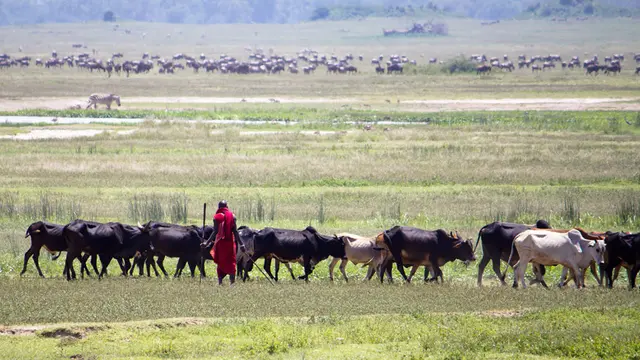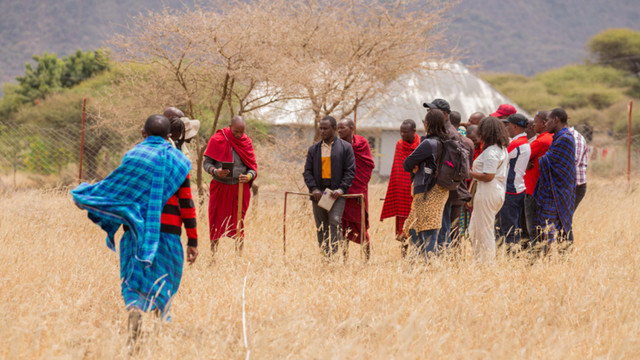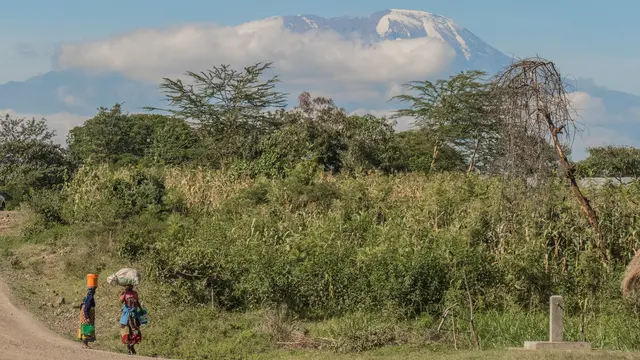UK minister says enabling more locally led adaptation is a key aim for COP26
The UK's COP26 Adaptation and Resilience Champion Anne-Marie Trevelyan says enabling more locally led adaptation informed by inclusive plans is a critical part of what the UK wants to achieve at this year's UN climate talks.
Anne-Marie Trevelyan is the UK government's International Champion on Adaptation and Resilience for the COP26 presidency and Minister of State for Energy, Clean Growth and Climate Change.
She addressed the closing plenary of the 15th International Conference on Community-based Adaptation to Climate Change (CBA15) via video recording.
Trevelyan said: "We know that effective adaptation requires local leadership. So enabling more locally led adaptation, informed by inclusive plans, is a critical part of what we as a presidency are seeking to catalyse, to continue through to the African presidency at COP27."
Trevelyan said the UK supports the Least Developed Countries (LDC) Group Initiative for Effective Adaptation (LIFE-AR) and recognises that countries and local communities should make decisions on building their resilience.
She said: "In supporting the LDC Initiative for Effective Adaptation and Resilience programme, we recognise that countries and local communities are the experts in determining how to prepare for climate change. And they ought to have the autonomy to make decisions on building their resilience."
The LDC Group at the UN climate negotiations represents the 46 nations most vulnerable to climate change, despite having done the least to cause it. LIFE-AR is an LDC-led initiative designed to inform adaptation plans, identify immediate priorities and support wider national efforts to build resilience and address poverty.
Championing the principles for locally led adaptation
Trevelyan highlighted the principles for locally led adaptation launched earlier this year. "The launch of principles for locally led adaptation at the Climate Adaptation Summit, signed by over 40 governments, global institutions and local and international NGOs, provides a framework for how adaptation can be delivered more effectively."
She said the UK COP26 presidency and partners would hold regional dialogues to champion the eight principles: "Through the Adaptation Action Coalition and the High Level Champions Race to Resilience, we will hold a set of regional dialogues encouraging both State and non-State actors to champion the principles of locally led action and develop domestic capabilities to transform how adaptation action is both planned and implemented."
Trevelyan said work was continuing on getting climate finance to the local level. She said: "At the Climate and Development Ministerial, we launched the Taskforce on Access to Climate Finance. With Fiji and other parties, we will align programmatic support behind national climate plans, to improve local level access to financial flows."
The taskforce aims to achieve a step-change in access to finance for climate action by delivering a new, programmatic approach to supporting partners' climate action plans. IIED recently published a guest blog analysing the taskforce proposals.
Locally-driven research that addresses local needs
Trevelyan said it was important to generate locally-driven research that addresses local needs, highlighting plans to develop an international Adaptation Research Alliance for launch at COP26.
She said: "Research additionally needs to be locally driven, addressing the needs of local communities and the Adaptation Research Alliance launched at the Gobeshona conference is encouraging the adaptation research community to endorse its research principles to carry out action-orientated research that responds to local needs."
The CBA15 conference brought together more than 400 practitioners, grassroots representatives, local and national government policymakers and donors from almost 70 countries. The event featured five days of discussions, workshops and training sessions about how to deliver locally led climate adaptation.
CBA15’s opening plenary was addressed by Sonam P. Wangdi, chair of the LDC Group, who warned that while the world’s attention has been on COVID-19, the crises on climate, biodiversity loss and poverty continue – and the stakes have never been higher than today.
Trevelyan's address was followed by a panel discussion during which representatives of the CBA community of practice and high-level panellists shared their reflections on the conference and next steps.
- Watch a full recording of the CBA15 closing plenary on IOIED's YouTube channel.


